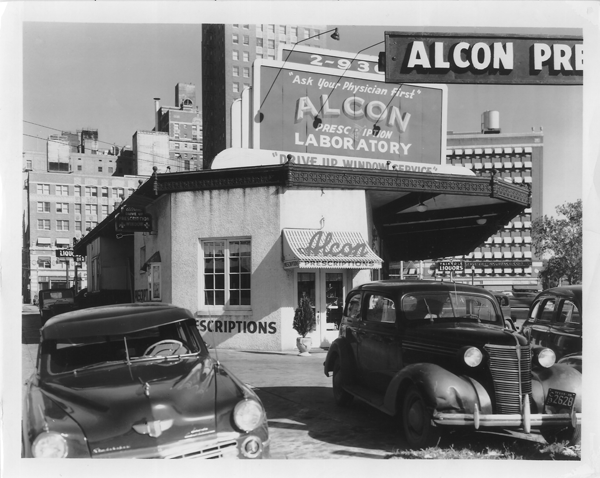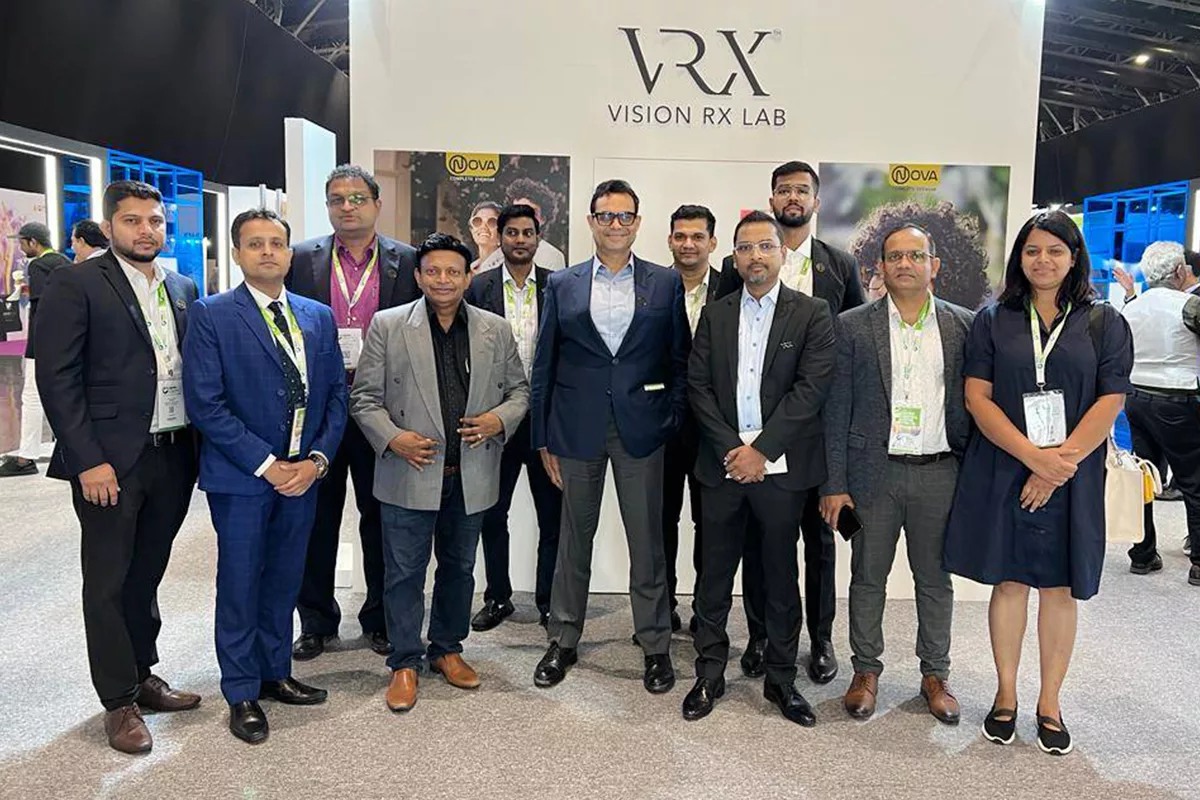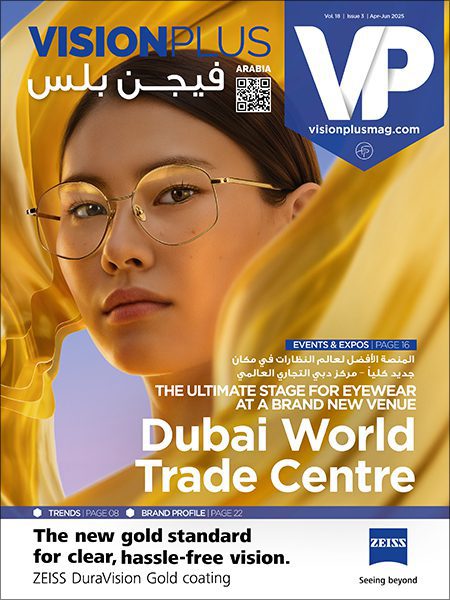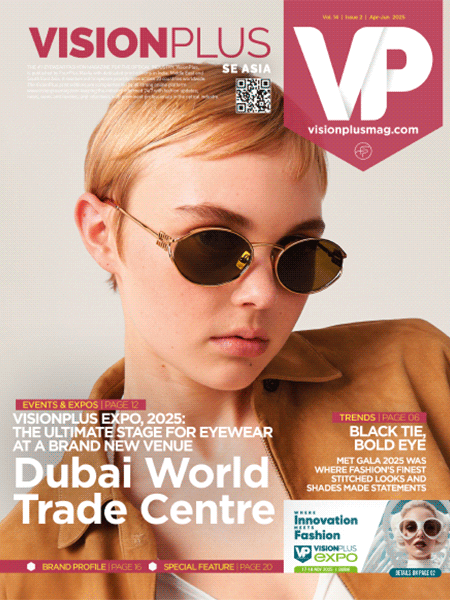For more than 70 years, Alcon has become the world’s leading eye care company and is now a division of Novartis

When two young pharmacists Robert Alexander and William Conner opened a small ophthalmic shop in 1945 in Fort Worth, Texas, and called it Alcon, combining the first syllables of their last names, little had they realised that one day it would grow to be a global company and the world leader in eye care. With a network that spans across 180 countries and covering nearly 90 percent of the world, Alcon, a division of Novartis, has a three-winged approach to the eye care business: Surgical, Ophthalmic Pharmaceutical and Vision Care.
Within its surgical business group, the company offers a complete line of surgical products and technologies required for the treatment of cataracts, retinal diseases, glaucoma and refractive surgery. They also develop advanced technology intraocular lenses (ATIOLs) to treat cataracts and refractive errors, like presbyopia and astigmatism. Also in the surgical portfolio are advanced viscoelastics, surgical solutions, surgical packs, and other disposable products for cataract and vitreoretinal surgery.
Alcon’s ophthalmic pharmaceutical division is focused on the development of products to manage and treat various eye conditions and diseases, including glaucoma, infection and inflammation, eye allergies and over-the-counter dry eye relief.
Alcon is also one of the largest manufacturers of contact lenses and lens care products within its vision care group. They have mastered the art of providing the best prescription lenses, along with an enhanced level of aesthetics. The company’s commitment towards advancing innovations continues to result in the discovery of new technologies and products, to help patients around the world see better.
History of Alcon
During the first couple of years while Alcon was only a small ophthalmic shop, the store remained open during the day, while at night, Conner and Alexander spent time preparing sterile injectables and oral products. So did the two entrepreneurs have a fancy lab to make these medicines? Hardly. The medicines were made with the help of a pressure cooker and a blender! But what they had was a formula for success because business was ever-increasing.
 In 1947, Alcon grew to become Alcon Laboratories, Inc. and crowned its first president, William Conner. Three years later, the company made its first two ophthalmic products: Opthalzin for minor eye infections and Zincfrin for itchy eyes. It was soon after that the company, with the help of a local physician, invented and patented its first eye drop dispensing bottle called the Drop-Tainer; making it a clear indication that Alcon was here for the long haul. The company continued to grow and soon, it started its international operations.
In 1947, Alcon grew to become Alcon Laboratories, Inc. and crowned its first president, William Conner. Three years later, the company made its first two ophthalmic products: Opthalzin for minor eye infections and Zincfrin for itchy eyes. It was soon after that the company, with the help of a local physician, invented and patented its first eye drop dispensing bottle called the Drop-Tainer; making it a clear indication that Alcon was here for the long haul. The company continued to grow and soon, it started its international operations.
But even as Alcon strode towards establishing itself as a force to be reckoned with, it embarked on another parallel journey–that of social service. It formed the Alcon Trust and the Alcon Foundation through which it supported (and continues to do so) causes, organisations and people who work towards the betterment of eye care. In fact, to further enhance its commitment, Alcon also established two in-kind donation programs: Medical Missions and US Patient Assistance Programs. In 1971, after clocking sales of USD $31mm, Alcon went public with a listing on the NYSE.
In 1978, Nestle, the food company bought Alcon and provided it the impetus required to take it to the next level of expansion. With this business expansion, Alcon’s net of charitable operations also opened up further. Alcon partnered with Orbis International and to-date supports them through a combination of its Flying Eye Hospital and India Childhood Blindness Initiative.
Alcon’s meteoric growth
As advances continued within the cataract surgical market; in 1994, Alcon developed an innovative material for a new type of intraocular lens (IOL), which was eventually branded as AcrySof. Today, AcrySof IOLs are the world’s most frequently implanted lens. The portfolio now includes AcrySof ReSTOR IOL, a multifocal IOL, launched in 2005 and soon because a global leader. In 2009, Alcon’s leading brand of intraocular lenses (IOLs) AcrySof created a new record of over 40 million implants worldwide. The very next year Alcon acquired LenSx Laser platform and with it became the global leader in cataract laser technology.
 This era also saw Alcon’s first foray into the contact lens market. First with Focus Dailies disposable contact lenses and the Air Optix brand of lenses. With the many successes now under its belt, Novartis purchased 25 percent of Nestlé’s stake in Alcon, becoming its second-largest shareholder in 2008.
This era also saw Alcon’s first foray into the contact lens market. First with Focus Dailies disposable contact lenses and the Air Optix brand of lenses. With the many successes now under its belt, Novartis purchased 25 percent of Nestlé’s stake in Alcon, becoming its second-largest shareholder in 2008.
Three years later, Novartis fully acquired Alcon in a merger agreement. This made Alcon the second-largest division of Novartis and pushed sales up to USD $10b. This period also marked the launch of the world’s first and only water gradient daily disposable lens, Dailies Total1.
In 2014, Alcon broadened its Dailies and Air Optix brands of contact lenses even further by introducing multifocal and toric designs within its family of Dailies AquaComfort Plus contact lenses, as well as introduced Air Optix Colors contact lenses, a monthly color-enhancing lens available in nine natural-looking colors.
Master of Contact Lenses
With its huge base of contact lenses, Alcon is undoubtedly the leader of the pack. It scores in both variety, as well as sales. It has made a contact lens for all prescriptions and their full portfolio includes Air Optix Aqua, Air Optix Aqua Multifocal, Air Optix for Astigmatism, Air Optix Colors, Air Optix Night and Day, Dailies AquaComfort Plus, Dailies AquaComfort Plus Multifocal, Dailies AquaComfort Plus Toric, Dailies Total1, Focus Dailies, Focus Dailies Toric, Focus Dailies Progressives, Freshlook Colors, Freshlook ColorBlends, Freshlook Dimensions, Freshlook Handling Tint, Freshlook Toric ColorBlends, Freshlook Toric Handling Tint and Freshlook One Day.
For those who tend to sleep overnight in contact lenses the FDA-approved Air Optix Night & Day Aqua contact lenses can be prescribed as a good choice. The lens can be worn for 30 nights continuously.
Meanwhile, Air Optix Aqua Multifocal contact lens has a range of prescription strengths and helps provide uninterrupted vision due to the Precision Profile design it uses. It offers clear vision at all distances, from near to far.
Astigmatism generally means that one has to settle for dryness, discomfort and blurred vision when a person wears contact lenses. Air Optix for astigmatism has been specially designed with two technologies that allow the eyes to be consistently moist, while offering visual acuity and comfort without compromise. As with most toric lenses for astigmatic patients, sometimes the contact might rotate while it’s in the eye. This is the main reason for blurred vision. Air Optix for astigmatism offers stability, a key to consistent vision.
 Air Optix Aqua is special because of its ultra smooth surface technology that creates a protective layer of moisture to stave off irritating deposits. It can work against deposits for an entire month and can pass five times more oxygen than the regular soft contact lenses.
Air Optix Aqua is special because of its ultra smooth surface technology that creates a protective layer of moisture to stave off irritating deposits. It can work against deposits for an entire month and can pass five times more oxygen than the regular soft contact lenses.
Air Optix Colours offers an entire range of nine beautiful and natural colours that can make eyes look absolutely stunning.
One of Alcon’s largest-selling lenses and its most touted one is Dailies Total1, a water gradient contact lens that has been labelled as number one with the highest rating in overall performance. It has a surface of more than 80 percent water, which is almost the same as the natural eye. Dailies AquaComfort Plus Multifocal contact lenses uses the Precision Profile design for clear vision along with blink-activated moisture for day long comfort. And, its new toric design has three times more moisturising features for patients with astigmatism.
The Future: Research and Development
Alcon has more than 2,000 highly skilled scientists, physicians, industry scholars and professionals worldwide who are dedicated to the research and development of treatments to improve vision. An earmarked amount of $1 billion is invested annually for this purpose. Alcon is currently developing products and solutions to treat  cataracts, glaucoma, age-related macular degeneration, retinal diseases, dry eye, eye infections and inflammation, ocular allergies and refractive errors.
cataracts, glaucoma, age-related macular degeneration, retinal diseases, dry eye, eye infections and inflammation, ocular allergies and refractive errors.
In 2014, Alcon moved into yet another unchartered arena by signing up with Google’s research division, Google Life Sciences, to develop lenses with non-invasive sensors, microchips and embedded miniaturised electronics within contact and intraocular lenses, to monitor insulin levels for diabetics or restore the eye’s natural focus in presbyopic patients who can no longer read without glasses. The goal with the accommodating lenses is to provide consistent vision so one could read the newspapers, as well as look at close objects and focus on a distant object without interruption – an auto focus lens similar to the natural eye. Yes, Alcon’s best is yet to come.












